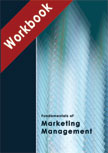Tata Indica V2 Xeta: Competing in the Indian Small Car Market |
ICMR HOME | Case Studies Collection Please note: This case study was compiled from published sources, and is intended to be used as a basis for class discussion. It is not intended to illustrate either effective or ineffective handling of a management situation. Nor is it a primary information source. |
||||
|
"The Tata Indica story resembles the fable of the ugly duckling in some ways, with one crucial difference: the country's first indigenously designed and manufactured passenger car never looked less than pretty. But, like the duckling of the fairy tale, it has emerged stronger and more beautiful than ever after overcoming global competition and a recessionary market."1 - K. A. Ananthram and Mohini Bhatnagar, independent columnists, in October 2000. "All of us knew we would have to go through the learning curve. Our effort has always been to shorten that curve and get ahead of the competition. We never lost sight of our goal, which was to provide the customer with a product (Indica) that offers the best value for money."2 - Rajiv Dube, Senior Vice-President (Manufacturing & Commercial - Passenger Cars Business Unit), Tata Motors Limited, in October 2000. "Tata Motors has always been known as a diesel carmaker, despite the fact that they know petrol too. Tata now wants to shake off that image and plant the Indica firmly in the minds of petrol punters too. And this is precisely the reason for the new Xeta variant."3 - Siddhraj Singh, an auto-analyst with Autocar India, in 2006. Introduction
Industry analysts said that this growth was mainly due to the launch of the Indica V2 Xeta (Xeta) in January 2006, and subsequently its revamped version in November 2006.
Tata Indica V2 Xeta: Competing in the Indian Small Car Market - Next Page>> 1] K. A. Ananthram and Mohini Bhatnagar, "Putting
the customer in the driver's seat," www.tata.com, October 2000. |
Case Studies Links:-
Case Studies,
Short Case Studies,
Simplified Case Studies.
Other Case Studies:-
Multimedia Case Studies,
Cases in Other Languages.
Business Reports Link:-
Business Reports.
Books:-
Text Books,
Work Books,
Case Study Volumes.



